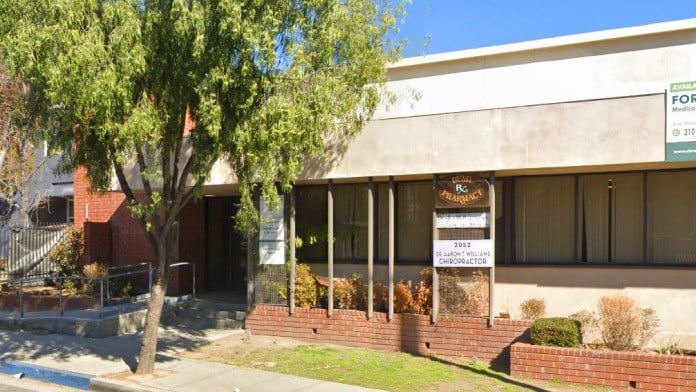About Pax House
Their intensive outpatient program can be a follow up to residential care that you’ve received elsewhere. Or, it can be a standalone program. They provide individual counseling, family workshops, and group support. That way, you won’t be continuing your recovery on your own.
There’s job training programs, health classes, and music therapy. You can also exercise and create art as a way of coping with trauma. Your family will also be encouraged to attend meetings so that they can learn ways to support your recovery.
Once you complete your program, you’ll return home, but your triggers may lead you to temptation again. This why you’ll continue to receive support with Pax House. There’s an alumni program with weekly recovery meetings and a 12 Step program so you’ll stay connected with your peer group.
Facility Overview
Rehab Score
Gallery












Accepted Insurance
Other Forms of Payment
Self-pay involves paying for treatment out of your own pocket. You can use savings or credit, get a personal loan, or receive help from family and friends to fund your treatment. If you don't have insurance or your insurance plan doesn't cover a specific program, self-pay can help ensure you still get the care you need.
Private insurance refers to any kind of healthcare coverage that isn't from the state or federal government. This includes individual and family plans offered by an employer or purchased from the Insurance Marketplace. Every plan will have different requirements and out of pocket costs so be sure to get the full details before you start treatment.
Medicaid is a state based program that helps lower-income individuals and families pay for healthcare. Medicaid covers addiction treatment so those enrolled can use their coverage to pay for rehab. When a program accepts Medicaid the client often pays very little or nothing out of their own pocket.
Addiction Treatments
Levels of Care
When clients enter Pax House, they undergo detox treatment, if they have not already received it elsewhere. Their Clinicians assess the client and provide the appropriate detox treatment. Clients are monitored to ensure that there are no adverse effects of the withdrawal, especially for those at risk of problems. Once a client has completed detox services they will start the structured and comprehensive treatment program like their inpatient rehab program. If a client is healthy enough to begin while still undergoing detox, they might start participating in some aspects of the treatment program concurrently. They want to ensure that their clients are stabilized and healthy enough to participate in their program at a level where they will be able to concentrate fully on learning about their disease, understanding the underlying issues that led to its development, and gaining the skills and the strength necessary to overcome it. The length of the detox program will depend on the situation, but they ensure that each client has the appropriate level of detox necessary for the first step in their journey to recovery.
An outpatient program includes many of the facets of a residential program but a person can maintain their residence at home. Depending on the time required for the program, they can often continue to work and live their normal life while receiving the necessary treatment. Outpatient programs work well for people who cannot commit to leaving their jobs or other aspects of their life to stay in a residential program. Additionally, they provide the perfect bridge between a residential program and returning to life at home. The transition from an intensive residential program where a person has a structured schedule, 24-hour monitoring, and is surrounded by supportive staff and peers to returning to a home environment that includes many of the pressures and triggers that led to the development of the disorder can be difficult. If a person does not have the proper support system and relapse prevention plan, then he or she is at a high risk of relapse.
The 12-step method was first developed by Dr. Bob and Bill W., the founders of AA, in 1935. Since then, it has been adapted for many other support groups that help people overcome behavioral health problems, including Narcotics Anonymous (NA). The method helps recovering addicts create the change necessary to live a life free of alcohol and drugs. The Twelve Steps indicate that trusting in a higher power is an important element in recovering from drug and alcohol addiction. Although AA was founded on a Christian doctrine, it has evolved to include any spiritual or religious belief.
An aftercare program is a specialized program offered by drug and alcohol treatment facilities for clients who have successfully completed their rehabilitation program. While most facilities will have slightly different programs, the main facets are continued support and treatment. This may be in the form of continued counseling sessions, group sessions, booster sessions, or follow-up meetings. Aftercare provides a forum for monitoring and discussing how recovery is going, as well as providing educational opportunities to learn additional skills and techniques to help one remain on the path to recovery. It can also provide a way to keep the recovering addict accountable, which can greatly help him or her to withstand temptation.
At Pax House, they have dedicated facilities for sober living minutes from Pasadena, CA. These facilities have the same home-like atmosphere and comfortable environment as their residential facilities. Residents can enjoy the quiet serenity of Altadena, California with the San Gabriel Mountains in the background. There is some supervision, but clients have more freedom than they do in their residential program. They require their sober living residents to continue their treatment, either through their outpatient program, aftercare program or by attending 12-step meetings. Clients in their residential program are welcome to transition to their sober living facilities before they head home. Additionally, many of their outpatient clients choose to live in sober living facilities for additional support during their early recovery. However, it is not required to have been in their residential program in order to live in their sober living facilities. The main guideline is that no alcohol or drugs of any kind are allowed in the facility. Random drug or alcohol tests will be performed, as well as searches of the property, to ensure adherence to requirements for residency.
Treatments
The goal of treatment for alcoholism is abstinence. Those with poor social support, poor motivation, or psychiatric disorders tend to relapse within a few years of treatment. For these people, success is measured by longer periods of abstinence, reduced use of alcohol, better health, and improved social functioning. Recovery and Maintenance are usually based on 12 step programs and AA meetings.
Drug rehab in California teaches participants constructive ways to stay clean and sober. Treatment revolves around helping individuals stop using the substance they are addicted to and learn healthy habits to avoid relapse.
Many of those suffering from addiction also suffer from mental or emotional illnesses like schizophrenia, bipolar disorder, depression, or anxiety disorders. Rehab and other substance abuse facilities treating those with a dual diagnosis or co-occurring disorder administer psychiatric treatment to address the person's mental health issue in addition to drug and alcohol rehabilitation.
Opioid rehabs specialize in supporting those recovering from opioid addiction. They treat those suffering from addiction to illegal opioids like heroin, as well as prescription drugs like oxycodone. These centers typically combine both physical as well as mental and emotional support to help stop addiction. Physical support often includes medical detox and subsequent medical support (including medication), and mental support includes in-depth therapy to address the underlying causes of addiction.
Substance rehabs focus on helping individuals recover from substance abuse, including alcohol and drug addiction (both illegal and prescription drugs). They often include the opportunity to engage in both individual as well as group therapy.
Programs
Adult rehab programs include therapies tailored to each client's specific needs, goals, and recovery progress. They are tailored to the specific challenges adult clients may face, including family and work pressures and commitments. From inpatient and residential treatment to various levels of outpatient services, there are many options available. Some facilities also help adults work through co-occurring conditions, like anxiety, that can accompany addiction.
Young adulthood can be an exciting, yet difficult, time of transition. Individuals in their late teens to mid-20s face unique stressors related to school, jobs, families, and social circles, which can lead to a rise in substance use. Rehab centers with dedicated young adult programs will include activities and amenities that cater to this age group, with an emphasis on specialized counseling, peer socialization, and ongoing aftercare.
Clinical Services
Cognitive behavioral therapy (CBT) is one of the most widely used forms of psychotherapy for addiction treatment, as well as many mental health conditions, including depression and anxiety. The focus of CBT is to help a person recognize the maladaptive thought processes, behavior patterns, and emotions that have led to unhealthy or damaging behavior that has taken over their lives. It also provides tools to help counter these patterns and replace them with healthier alternatives. At Pax House, they use CBT as the basis of their individual counseling, as well as in some of their process groups.
Whether a marriage or other committed relationship, an intimate partnership is one of the most important aspects of a person's life. Drug and alcohol addiction affects both members of a couple in deep and meaningful ways, as does rehab and recovery. Couples therapy and other couples-focused treatment programs are significant parts of exploring triggers of addiction, as well as learning how to build healthy patterns to support ongoing sobriety.
Art therapy is a method that uses creative and visual arts for facilitating the expression of feelings and emotions. A client does not have to be an artist or have any artistic talent in order to benefit from art therapy. It is about the journey, not the final product. Art therapy can involve any medium of art, including oil painting, watercolors, clay, woodwork, painting prefabricated items, collages, drawing, etc. Art therapy is led by a certified counselor, and it can be done as a guided practice or free expression. During a guided practice, the counselor will guide the clients to create a certain object or express certain emotions. Free expression is when the clients can create whatever they want. Many counselors combine the two by having a theme and providing guidance when needed, but allowing the clients to create the artwork based upon their particular feelings. Art therapy is typically a quiet and relaxing experience. There might be meditative music playing to facilitate the meditative state required for expressing hidden or repressed thoughts and feelings. However, if a client feels the need to share, he or she can, but any disruptive behavior is discouraged. The focus of the session is on accessing and expressing inner thoughts and feelings.
Family group therapy, or family groups, are specialized group therapy sessions that focus on the family as a whole, rather than just on the condition of the addict. Family groups can focus on educating family members about the addiction and prepare them for dealing with early recovery, or they can focus on providing a space for managing family conflict and issues that have arisen in the treatment process. At Pax House, their family groups provide a mixture of psycho-education about the disease and a safe space for emotional expression and healing.
Groups play a significant role in the treatment program. At Pax House, there are a few different types of groups, including process, educational, and family groups. Process groups focus on addressing various shared issues, such as self-esteem, anger management, or trauma, in a group setting with others undergoing a similar experience. Clients receive supportive feedback from their peers and have a safe environment in which to share and process certain feelings and emotions. A counselor advises the group. Education groups differ in that the main focus is to teach clients about the alcoholism and addiction. It is done in an interactive setting where clients can ask questions and discuss certain issues. Family groups include the family members of the clients, and issues related to family dynamics are addressed.
The Pax House Program is individualized to each client’s needs, but the main treatment components remain the same. The first step in their program, if necessary, is detox. The foundation of the program is the individual counseling sessions. During an initial session with the counselor, the client and counselor will formulate an individualized treatment program that addresses the client’s particular needs. During treatment, the client will meet with their counselor on a weekly basis to discuss issues that have arisen during treatment, as well as to process specific assignments.
Motivational Interviewing (MI) is a clinical approach to helping people with substance abuse issues and other conditions shift behavior in positive ways. It is more goal-oriented than traditional psychotherapy, as MI counselors directly attempt to get clients to consider making behavioral change (rather than wait for them to come to conclusions themselves). Its primary purpose is to resolve ambivalence and help clients become able to make healthy choices freely.
Trauma therapy addresses traumatic incidents from a client's past that are likely affecting their present-day experience. Trauma is often one of the primary triggers and potential causes of addiction, and can stem from child sexual abuse, domestic violence, having a parent with a mental illness, losing one or both parents at a young age, teenage or adult sexual assault, or any number of other factors. The purpose of trauma therapy is to allow a patient to process trauma and move through and past it, with the help of trained and compassionate mental health professionals.
Amenities
-
Residential Setting
-
Private Setting
-
Yoga Studio
-
Hiking
Staff & Accreditations
Staff
James Burnett
CEO & Owner
Marcia Burnett
COO & Owner
Accreditations

The Commission on Accreditation of Rehabilitation Facilities (CARF) is a non-profit organization that specifically accredits rehab organizations. Founded in 1966, CARF's, mission is to help service providers like rehab facilities maintain high standards of care.
CARF Accreditation: Yes
Contact Information
2052 N. Lake Ave
Suite F
Altadena, CA 91001


